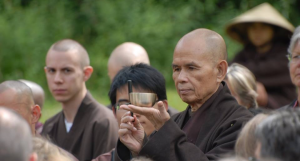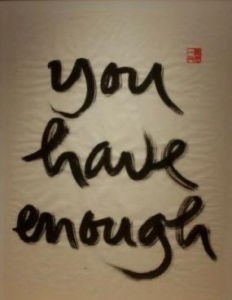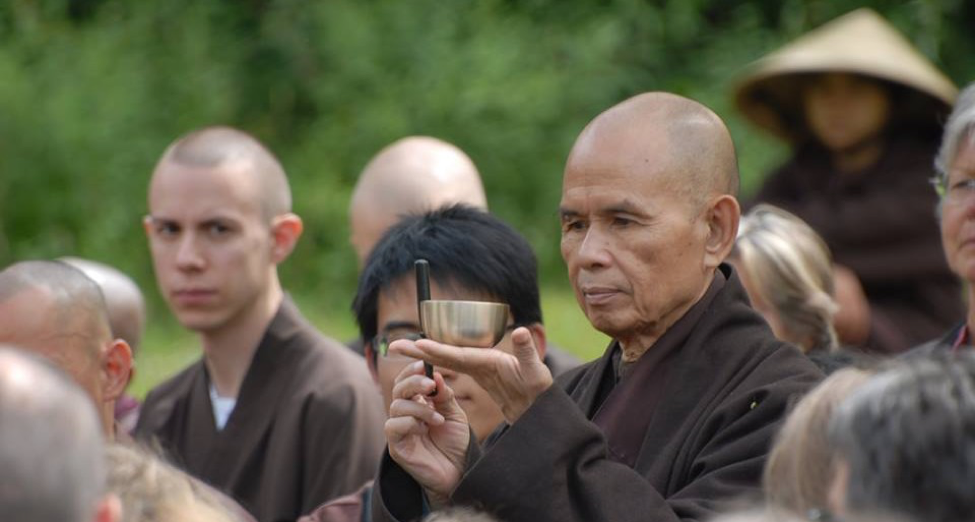Change Agent: Thich Nhat Hanh

“If we work for peace out of anger, then we will never succeed. Peace is not an end. It can never come about through non-peaceful means.”
–Thich Nhat Hanh, Love in Action: Writings on Nonviolent Social Change
Thich Nhat Hanh writes a few words on a page that resonate with people throughout the world. “You have enough.” These words are one example of the simple words he has eloquently written on delicate paper to be shared with the world. As I see these words, as they sink in, I exhale and am at peace.

Thich Nhat Hanh paints these words of wisdom onto simple parchment paper during or just after meditation. Then, they are passed around the monastery to be held in peace and prayer so that the people receiving them may also be held in great peace and prayer. As I feel the delicate paper in my hand, I visualize the hands creating it and the others handling it with such care and respect, through this I feel calmness and a connection to the earth.
Gandhi said, “The means and the ends are one” and Thich Nhat Hanh has taken that further to say peace is both the means and the ends. He walks with peace as his intention every day of his life. Thich Nhat Hanh was born in Vietnam in 1926 and knew at a very young age that he wanted to become a monk and seek a peaceful way of being. In a recent post, Meghan speaks about resilience as making a choice to be hopeful instead of hopeless in face of daily life and personal tragedy. Thich Nhat Hanh is certainly a face for resilience and a model for each of us.
When Thich Quang Duc lit himself on fire in 1963 to protest the persecution of Buddhists by the government, Thich Nhat Hanh explained in a public letter to Dr. Martin Luther King, Jr. that this monk was “practicing the doctrine of highest compassion by sacrificing himself in order to call the attention of, and to seek help from, the people of the world.” When war tore through Vietnam in the same year, Thich Nhat Hanh and others dodged bullets to take food and supplies to those in need while organizing people to rebuild villages cut off and destroyed by bombs. He even cared for the wounded…regardless of their “side” in the war. In one interview with the Shambhala Sun, Thich Nhat Hanh said, “When bombs begin to fall on people, you cannot stay in the meditation hall all of the time. Meditation is about the awareness of what is going on—not only in your body and in your feelings, but all around you.”
Thich Nhat Hanh witnessed a great deal of tragedy throughout his life and yet chose to be mindful, peaceful, and hopeful. He spreads mindfulness and peace throughout the world in his writings, teachings and entire way of being
It is with great honor and respect, I bow to you, Teacher, Thich Nhat Hahn and thank you for your peaceful presence in our world.





Leave a Reply
Want to join the discussion?Feel free to contribute!